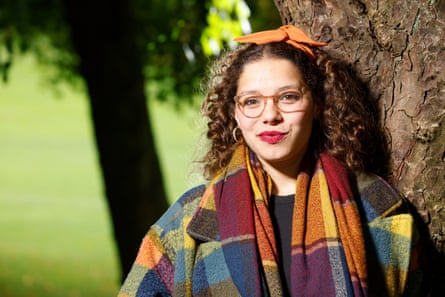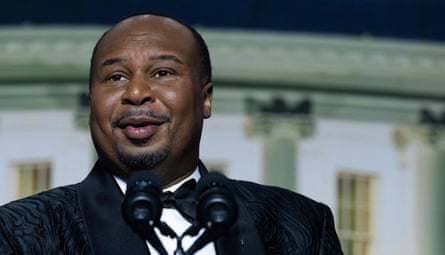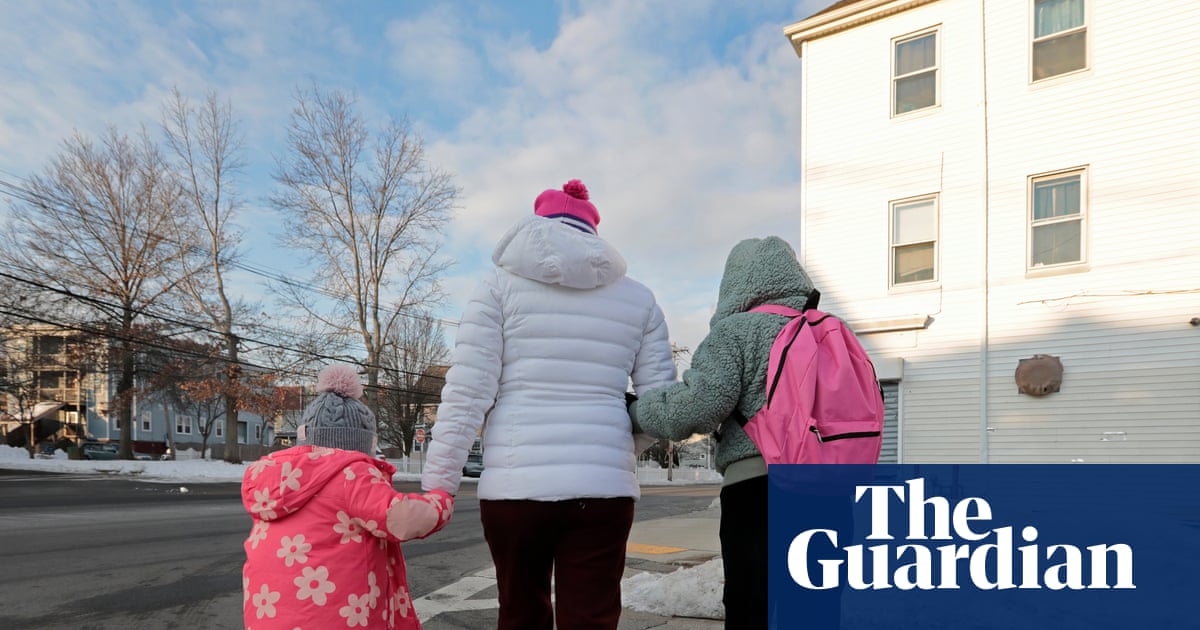It began with a good-natured rant about the Scottish summer weather and has developed into a global conversation about history, diaspora and diversity on both sides of the Atlantic.
Last week, Torgi Squire uploaded a TikTok post that any Scottish parent could relate to: why is it, he asked, that without fail the washout summer weather always improves the week that the kids go back to school?
The 43-year-old high school teacher from Glasgow ended with his usual sign-off, wishing everyone “a belter of a day”, and thought nothing more of it. The internet had other ideas.
The post was picked up by a US weather reporter and Squire’s comments were suddenly filling with African Americans expressing their amazement and delight at discovering a black man with a strong Scottish accent. But it didn’t stop there: black Scots on TikTok found themselves flooded with questions from their American cousins and seized the opportunity to respond with high calibre banter, as #blackscottishtiktok generated thousands more posts.
“It’s been a whirlwind,” said Squire, who teaches design and technology. His original post has racked up nearly 4m views, and he’s since welcomed more than 200,000 new followers.
“Americans are kept in a bit of an echo chamber by their media, and their only point of reference for Scotland is either Braveheart, Brave or Shrek. They don’t seem to have much awareness of the diaspora, particularly when it comes to the UK, which is maybe why they’ve reacted with so much curiosity.
“But it’s not just Americans. I’ve had comments from people in England too, so there’s still surprise at a black person with a Scottish accent on both sides of the Atlantic.”

Scotland is certainly more diverse than when he was growing up in the 1980s – “of the 1,400 kids at my secondary school, only four were black and three of them were related to me”.
“In my experience Scotland is a welcoming place and while there is still racism, it’s isolated and Scottish people are very good at calling it out. Perhaps because there are far fewer black people than somewhere like America, we tend to treat each other more like community.”
When Ellie Koepplinger, 28, who posts about race and politics on TikTok, saw the initial interest in Squire’s content, she thought: “This is going to be huge.
“Then other black Scottish people started to chime in and it was really exciting.”
Koepplinger, who grew up in Glasgow and lived in the US for nine years, added her own post about being mixed heritage in Scotland: “It feels like finally people are understanding that we have our own racial politics.”
But the interest from across the Atlantic has a more practical edge, she suggested: “Trump has made America so hostile to black people that having so many people talking about their positive experience in Scotland has got a huge amount of interest from people who are really keen to leave the States.”
The flurry of content had also prompted some fruitful conversations among black Scots themselves, she added. “It’s been really interesting to hear other Scottish people talk about the racism and the challenges they’ve experienced in Scotland. The black community in Scotland is fairly fragmented because it’s small, but it’s a population that’s excited to grow.”

Manny Daphey, a 20-year-old student, soon found his own content getting pushed by the TikTok algorithm, doubling his following as Americans flocked to his videos. “I was pretty blown by surprise, suddenly everyone was interacting and it felt like speaking to my long-lost cousins.”
A few negative comments have been vastly outweighed by a barrage of positivity, he says: “Lots of Americans are very intrigued about living in Scotland, saying they want to visit.” Perhaps inevitably, there are also some women who appreciate a handsome face with a Scottish accent. American women can be “very direct” he says.
When Roy Wood Jr, comedian and host of CNN’s Have I Got News For You US, arrived in Edinburgh a few days ago, he was ready to take in some shows at the festival. Instead, he’s been diverted on to a TikTok odyssey, travelling across the central belt to interview black Scots and prove to his fellow Americans they do indeed exist.
In one of his posts Wood makes the point that part of the reason why black Americans don’t know about black Scots is because their schools “barely teach them about black people in America”, adding: “People can laugh about dumb Americans not knowing there are black people in Scotland but this tells us a lot about the differences between education systems and what governments define as history.”
In his interviews with Scottish creators, Wood says a common thread is the sense that black Scots are suddenly able to connect online in a way that wasn’t so familiar in the real world. “Coming from the States, I found there’s no black neighbourhood, no exclusive cultural enclave for black people in Scotland, so there was a common feeling of ‘now we’ve found each other’.”
Wood tracked down Squire in Glasgow and the pair made a post together. “It’s an opportunity for black people across the whole diaspora to converse with one another.”
“The conversations I’ve had in the past week have really enriched my life,” added Squire. “It makes me happy that people are coming together.”

 German (DE)
German (DE)  English (US)
English (US)  Spanish (ES)
Spanish (ES)  French (FR)
French (FR)  Hindi (IN)
Hindi (IN)  Italian (IT)
Italian (IT)  Russian (RU)
Russian (RU)  4 weeks ago
4 weeks ago
























Comments